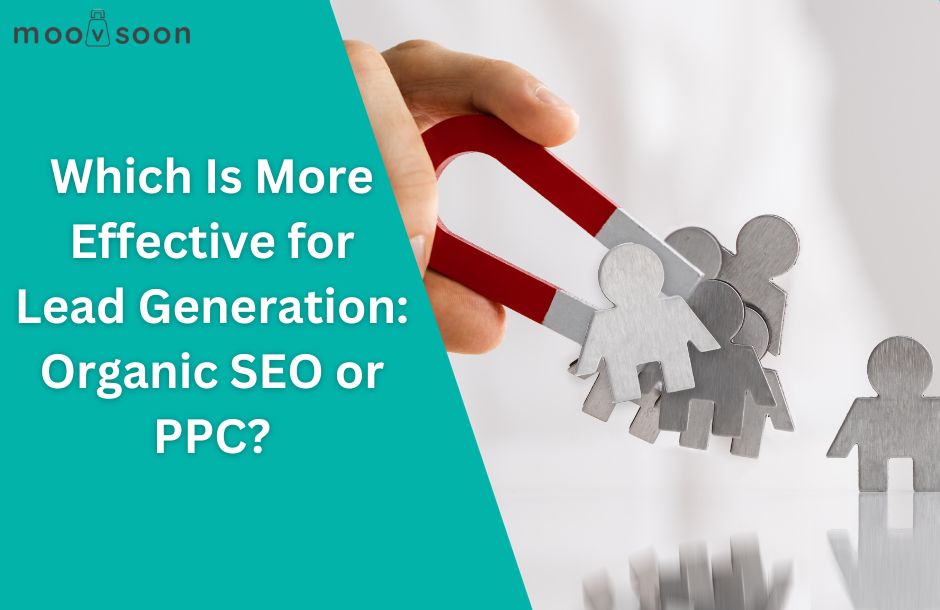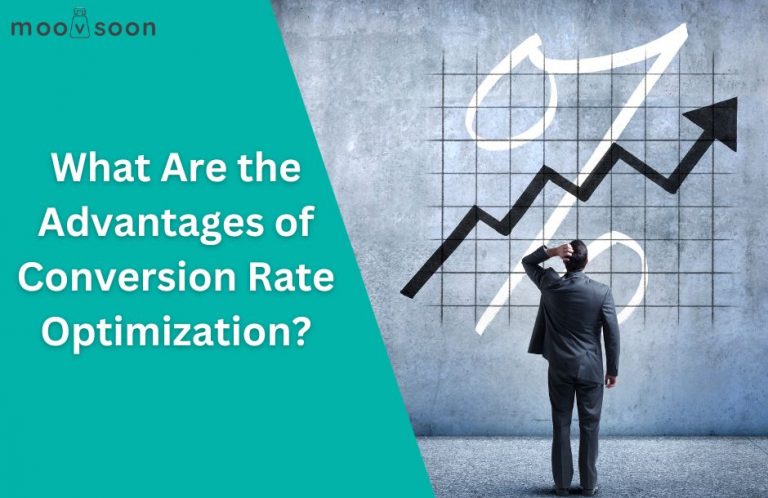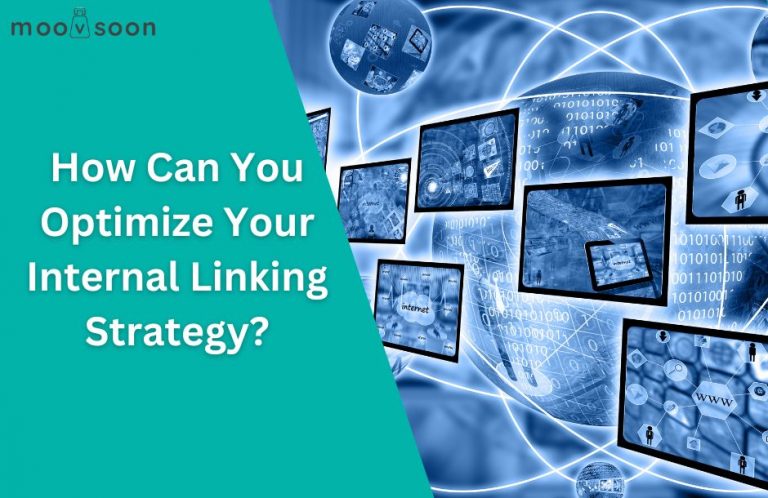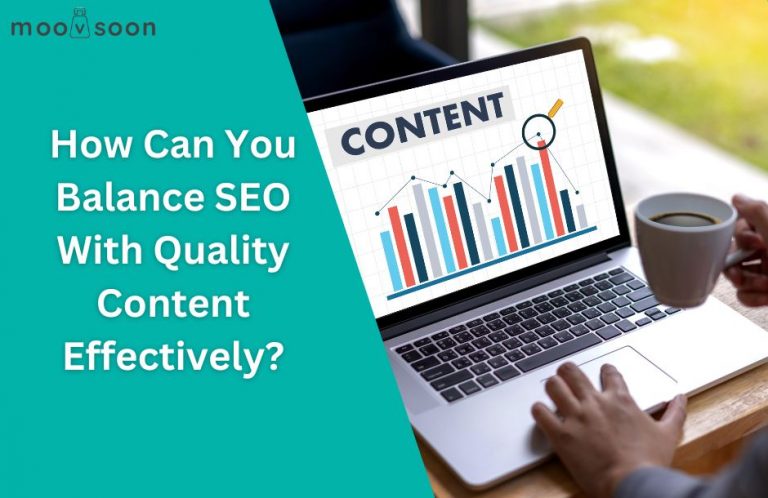
Organic SEO vs PPC: Which Delivers Better Lead Generation?
Organic SEO and PPC offer distinct paths for generating leads online. Organic SEO focuses on improving a website’s visibility through relevant keyword optimization and high-quality, authoritative content, aiming for long-term growth in unpaid search results. PPC, by contrast, revolves around targeted ads—driving immediate traffic to your website in exchange for ad spend. Both approaches address unique marketing objectives and involve specific mechanisms, from ongoing content creation for SEO to budget management and targeting for PPC.
For example, a local bakery may leverage SEO to steadily build visibility for searches like “best cupcakes near me” over several months, resulting in ongoing, cost-effective website visits. In contrast, a new e-commerce store can quickly launch a PPC campaign to gain immediate traction during a seasonal sale, making the approach ideal for fast results.
In practice, many marketers observe that SEO attracts higher-quality leads over time, while PPC delivers rapid results but requires sustained investment. We often see small businesses achieve a steady flow of inquiries from organic search after six months, though paid ads help them maintain visibility during competitive periods or product launches.
Ultimately, choosing between SEO and PPC depends on your time frame, budget, and lead quality goals. SEO excels for sustainable, long-term lead acquisition, while PPC is effective for short-term boosts or targeted promotions. For a deeper comparison, see organic SEO vs PPC lead generation.
Core Differences: SEO vs. PPC
When businesses compare SEO and PPC, understanding their fundamental differences helps inform smarter marketing choices. In our experience managing digital campaigns, companies often weigh these factors based on their specific goals.
The table below compares SEO and PPC on key characteristics relevant to most organizations.
| Factor | SEO | PPC |
|---|---|---|
| Cost Structure | Generally requires upfront investment in content, optimization, and link building. Ongoing costs are lower, but results accrue gradually over time. Example: A mid-size local firm might invest $1,500–$3,000 monthly in SEO services. | Payment is per click or impression. Budgets can be set daily or monthly, and spending stops when ads are paused. Example: New startups often allocate $500–$2,000 per month to launch a PPC campaign and see results quickly. |
| Visibility Timeline | Ranking improvements are gradual and may take weeks or months. Benefits are long-term and build cumulatively. We often see established brands prioritizing this approach for ongoing traffic and authority. | Ads become visible as soon as the campaign is active and budget is available. Useful for rapid exposure. Clients with short-term goals, such as product launches, tend to favor PPC for immediate visibility. |
| Audience Targeting | Reaches users actively searching for relevant topics through organic listings. Ideal for building credibility and capturing enduring interest. | Allows fine-grained targeting by demographics, location, time, and more. Effective for reaching specific segments or testing offers quickly. |
This comparison highlights the typical outcomes businesses experience. For example, a startup aiming for quick traction might start with PPC for fast visibility, then invest in SEO for lasting results. In practice, companies often match their choice to a campaign’s urgency and available budget—if rapid exposure is critical, PPC can provide immediate traffic, while SEO builds a foundation for steady long-term growth.
Understanding these differences can guide you in selecting the marketing strategy that aligns best with your business goals and resources.
Cost Structure and Resource Allocation
- Upfront Costs: These are funds or resources invested at the start of a campaign, such as design fees, software subscriptions, or initial content creation. For example, paying a one-time setup fee for a marketing automation platform represents an upfront cost. In my experience managing digital campaigns, allocating enough budget for these initial investments has prevented delays and improved campaign readiness.
- Ongoing Costs: These refer to recurring expenses like monthly advertising spend, subscription renewals, or contractor payments. Understanding ongoing costs helps keep campaigns sustainable and avoids overspending.
- Fixed vs. Variable Costs: Fixed costs remain stable regardless of campaign performance (e.g., tool subscriptions or retainers). Variable costs change in response to activity and scaling demands, such as performance-based ad spend or hourly team fees. Knowing which expenses are fixed and which are variable helps with forecasting and adapting strategies.
- Resource Allocation: Resource allocation distributes time, budget, and personnel across different project phases. For example, dedicating extra research hours at the beginning can clarify goals and improve long-term results. When I balanced resources between paid ads and organic efforts, it often led to stronger returns across both channels.
Understanding these components is crucial since misjudging upfront or ongoing expenses can cause budget shortages or inefficient spending. A well-planned allocation improves campaign outcomes and helps balance short-term costs with long-term returns. To get the best results, regularly review your spending mix and adjust allocations based on past performance data. For strategies on balancing content investments alongside SEO, view our guide to balancing SEO with quality content.
Understanding Upfront PPC Costs and Volatility
Pay-per-click (PPC) advertising uses a model where advertisers are charged each time a user clicks on their ad. The cost for each click is determined by real-time auctions, with competing businesses bidding for similar keywords or placements. As a result, there can be significant swings in what you pay from one moment to the next.
For example, in a highly competitive field like legal services, a sudden increase in rival bids can sharply raise your cost per click for the same keywords within minutes. Advertisers often experience days when budgets are spent much faster than expected due to this rapid competition.
Cost predictability in PPC is limited to the amount paid for each individual click, rather than for the total campaign spend. Many marketers find that while you set a maximum bid, your daily or monthly budget may fluctuate because of changes in demand, competitor actions, or seasonal spikes.
In practice, this volatility means businesses may need to monitor their campaigns closely and adjust their budgets as market competition shifts. Recognizing this cost unpredictability is crucial for planning ad spend and avoiding unexpected budget spikes.
You might notice patterns of rapid cost changes during peak times. Staying alert to these shifts helps advertisers anticipate and manage budget fluctuations more effectively.
SEO Is a Long-Term Investment: Where the Money Goes
Viewing SEO as a long-term investment means understanding not just the cost, but where your budget actually delivers value. In practice, most SEO expenses fit into three main categories: content creation, technical site optimization, and link building. For example, developing helpful blog posts or updating existing landing pages is considered content creation. This process also includes creating product descriptions, adding visual assets, or producing guides tailored to a target audience tasks essential for growing organic traffic and addressing evolving search queries.
Technical SEO covers the auditing and refining of website infrastructure. This might involve improving page speed, fixing crawl errors, or ensuring mobile usability. In client projects, technical fixes frequently reveal hidden opportunities that directly increase rankings and user engagement by removing site barriers.
Link building is the ongoing activity of securing reputable backlinks from authoritative domains. Examples include outreach for guest posting, building digital PR campaigns, or identifying industry directories. High-quality links serve as trust signals to search engines, demonstrating your site’s relevance within its topic.
On average, for accounts I’ve managed, content often comprises roughly 40% of total spend, with the remaining budget split between technical and link building efforts. For instance, monthly work can include a fresh keyword-driven content calendar, regular site health audits, and targeted outreach to acquire quality links.
Investing in all three areas consistently helps build lasting SEO value. A balanced approach ensures your site remains technically sound, informative, and well-connected within its industry. These investments generate results over time improved rankings, steady traffic growth, and long-term return for your budget.
If you’re budgeting for SEO, a practical step is to audit which area content, technical, or link building currently needs the most attention for your site. Prioritizing based on site needs ensures your investment delivers the strongest possible foundation for sustainable growth. Movers and service providers may find additional pitfalls by reviewing SEO tactics movers should avoid.
Key Factors Influencing Lead Generation
Several critical factors shape the effectiveness of lead generation strategies in digital marketing. Each element not only contributes individually but often works in coordination with others, impacting how potential leads find, engage with, and convert on your site.
- Target Audience Definition: Accurately identifying and segmenting your audience is essential. Knowing demographic details, search intent, and pain points ensures your messaging matches real prospects’ needs. For instance, B2B and B2C audiences often respond to different content approaches.
- Keyword Research: Understanding which terms your audience searches allows content to appear in relevant queries. Keyword insights also inform content topics and the language used on landing pages. In practice, we have observed that keyword research must always be paired with analyzing actual user behavior trends reveal that even high-volume keywords underperform if the content does not fit audience expectations.
- Offer Clarity: The perceived value of your service or incentive directly affects conversion rates. Clear, plain offers such as free trials, downloadable resources, or exclusive demos—typically capture more qualified leads.
- Landing Page Experience: User-friendly design, fast load times, and prominent calls-to-action guide visitors smoothly toward submitting their information. In many projects, our team has found that emphasizing social proof or testimonials on landing pages can shorten the decision cycle and increase sign-up rates, especially in B2C niches.
- Lead Qualification Process: Filtering out unqualified inquiries saves time and boosts downstream marketing efficiency. Example criteria include job title, company size, or need urgency. Effective qualification enables sales to prioritize high-potential prospects.
- Industry Competition: The number and strength of competitors can change your entire approach. In highly competitive spaces, unique positioning and continual offer updates become crucial. For instance, markets with new entrants often require more creative lead magnets or faster follow-up processes to stay ahead.
- Conversion Timeline: Some industries, such as real estate or B2B software, have long lead nurturing cycles. By contrast, ecommerce or consumer services convert much faster. Reflecting on recent campaigns, our agency consistently notes shorter timelines in B2C environments, which influences ad cadence and follow-up messaging.
Many of these factors interact; for example, keyword research and understanding audience behavior together help shape both your content direction and your offers, ensuring you meet genuine demand.
To apply these principles, examine which single factor may currently limit your own lead generation results. Where could a focused improvement make the most immediate impact?
Impact of Market Competition: When to Prioritize PPC vs. SEO
Different markets require different approaches to paid and organic strategies. The table below compares how high-competition and low-competition markets influence the choice between PPC (Pay-Per-Click) and SEO (Search Engine Optimization). This framework helps clarify where each channel becomes more effective in practice.
| Market Type | PPC (Pay-Per-Click) | SEO (Search Engine Optimization) |
|---|---|---|
| High-Competition Market | Requires larger ad budgets to outbid competitors. Immediate visibility possible, but click costs rise quickly. Businesses often prioritize PPC to gain fast traction where organic rankings are crowded. Example: In the finance or legal sector, clients frequently allocate more budget to PPC to ensure immediate lead generation despite intense keyword bidding. | SEO efforts face slower progress. Long-term investment; results take time due to established competitors. Some companies start with supporting SEO while relying mainly on PPC for early growth. |
| Low-Competition Market | Lower ad costs and less aggressive competition. Useful for rapid brand awareness. Commonly, agencies find PPC acts as a short-term accelerator while organic results build. | Easier to achieve rankings and visibility. Gains from SEO are realized faster and with less resource strain. Often, SEO is the main focus and can drive sustainable growth fairly quickly. |
In our agency’s experience, businesses in high-competition industries tend to lean on PPC for speed, then blend in SEO for cost efficiency over time. Conversely, lower-competition niches typically start with SEO and support with targeted PPC. If your market is crowded with well-established brands, consider initially investing in PPC to see rapid results, then gradually shift focus to SEO as your site gains authority.
Use this comparison to determine which marketing channel aligns best with your current competitive landscape and growth goals.
Audience Behavior and Intent Alignment in Keyword Prioritization
Understanding the link between audience behavior and keyword prioritization is essential for both SEO and PPC strategies. Marketers often analyze different types of user intent such as informational (seeking knowledge) and transactional (ready to purchase) to choose keywords that align with what their target audience is seeking. For example, when searchers enter phrases like “best running shoes to buy,” they reveal a transactional intent, while “how to properly tie running shoes” shows informational intent.
To make informed decisions, search data, including actual user queries, click-through rates, and query volume, is examined. This information helps marketers identify which keywords match current audience interests. Experienced marketers frequently observe that aligning keyword selection with user intent directly improves click-through and conversion rates for both organic content and ads.
For instance, if data shows users are searching for “how to choose a Wi-Fi router,” prioritizing tutorial and comparison pages tends to perform better than direct product listings. This approach is proven to increase engagement and lead to more relevant traffic.
To enhance your own keyword strategy, review your recent search queries and top-performing topics in analytics. Focus on prioritizing intent-driven keywords that match what your audience is actually searching for right now.
Integrating SEO and PPC for Lead Acquisition: Attribution, Synergies & Remarketing
Combining SEO and PPC efforts enables a more accurate view of how users progress across marketing channels. For instance, using Google Analytics to track conversion paths, marketers can see when a user first discovers a product organically and later returns via a paid ad before converting.
A practical application involves mapping PPC conversions back to the SEO keywords that initiated the user’s journey. By linking keyword data, teams can refine remarketing lists. For example, after noticing that visitors who arrived from high-intent SEO terms are more likely to convert when later shown a targeted PPC ad, a campaign can allocate greater budget to those segments.
In our campaigns, tracking user movement from organic search to paid channels has highlighted which SEO-originated audiences respond best to remarketing efforts. With attribution tracking set up in platforms like Google Analytics, it’s possible to identify specific touchpoints such as a blog visit via SEO, followed by a retargeted display ad click that lead to more qualified leads.
For actionable results, regularly review analytics reports that connect paid conversions to their originating SEO keywords. This approach allows optimization of bidding strategies and ad creative based on proven, multi-step customer paths. Integrating attribution data from both SEO and PPC channels consistently improves lead quality and increases the efficiency of remarketing spend.
Adapting to Search Engine Algorithm Changes
- Core Algorithm Updates: Search engines periodically update their algorithms to improve result quality and relevance. For example, a core update might reduce the visibility of thin or duplicate content, requiring website owners to audit and improve lower-performing pages. When a major update occurs, reviewing which pages lost traffic and identifying shared content patterns often leads to effective adjustments.
- Ranking Factor Changes: Adjustments to ranking factors, such as page speed or mobile usability, can shift the order of results. In practice, professionals monitor analytics to detect dips tied to announced ranking changes, then act by optimizing affected factors. Maintaining awareness of new ranking signals helps prioritize technical fixes or on-page improvements ahead of competitors.
- SERP Feature Introductions: The addition of new search features such as featured snippets or local packs—can alter which sites get prominent placement. After a SERP feature rollout, tracking performance for targeted keywords often reveals if visibility has shifted toward these new modules, prompting content or structured data adjustments.
- Continuous Monitoring: Regular analysis is essential because algorithm changes do not impact all pages equally. Experienced SEO practitioners use analytics dashboards to compare before-and-after performance, helping them respond quickly with targeted updates instead of broad, unfocused changes.
Adapting effectively means proactively auditing site data after algorithm shifts, interpreting trends, and taking focused action such as updating at-risk content or enhancing site speed—to maintain or regain visibility.
Conclusion
In digital marketing, experienced marketers combine SEO, PPC, and analytics to build a hybrid strategy that captures more qualified leads. Merging organic data with paid campaign results often uncovers lead segments that a single approach would miss, giving marketers a unique edge.
The real power lies in the synergy between organic and paid channels. For instance, insights from SEO keyword analysis regularly refine PPC targeting, while analytics data from each channel informs smarter budget allocation. This cross-channel approach helps reveal which keywords drive both organic clicks and cost-effective conversions when used in advertising.
Marketers with hands-on experience report that lead costs tend to decrease when channels are blended intentionally. In current campaigns, professionals routinely merge live keyword trends from SEO tools with bidding strategies in PPC platforms, resulting in more precise audience targeting and higher lead quality.
To maximize lead generation today, integrating these practices has moved from being an optional tactic to an essential part of successful digital marketing. For additional insights on lead generation effectiveness, see which is more effective for lead generation: organic SEO or PPC.
Looking to Grow Your Moving Leads?
Leveraging the right technology and real estate data can help moving companies stay competitive, even during slower months. MoovSoon provides access to actionable insights that support smarter targeting and improved lead quality without disrupting your existing workflows.
If you’re looking to boost qualified leads or want to see how data-driven marketing works in practice, you can schedule a demo. Maximize Moving Leads This Slow Season—reach out to explore the difference industry-specific tools can make.
For questions or a conversation about your marketing needs, call +1 (914) 255-5452.



